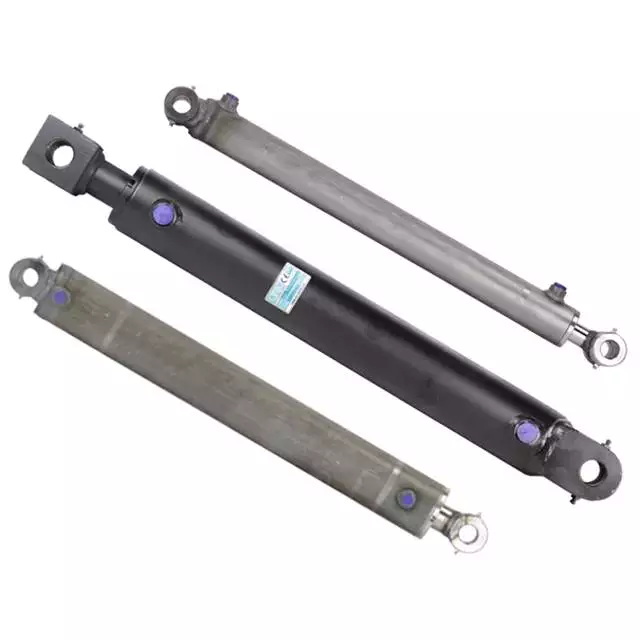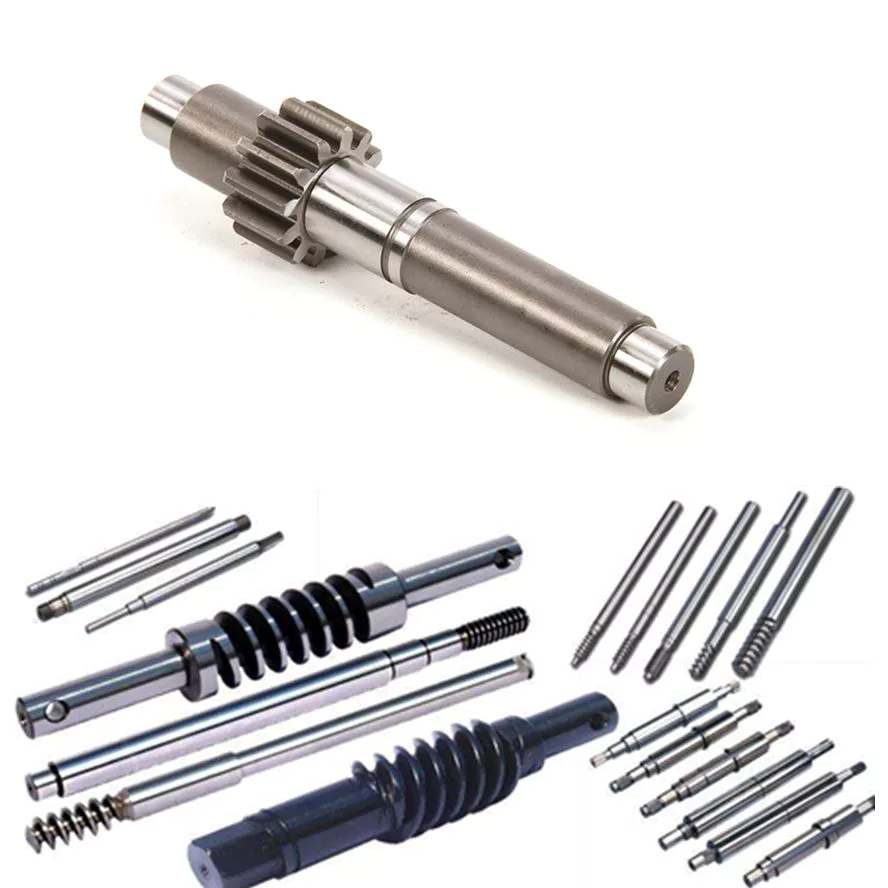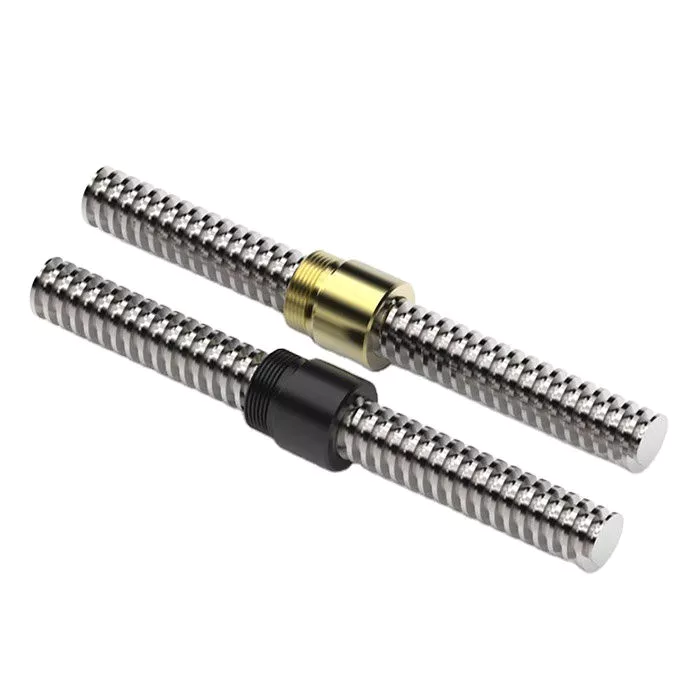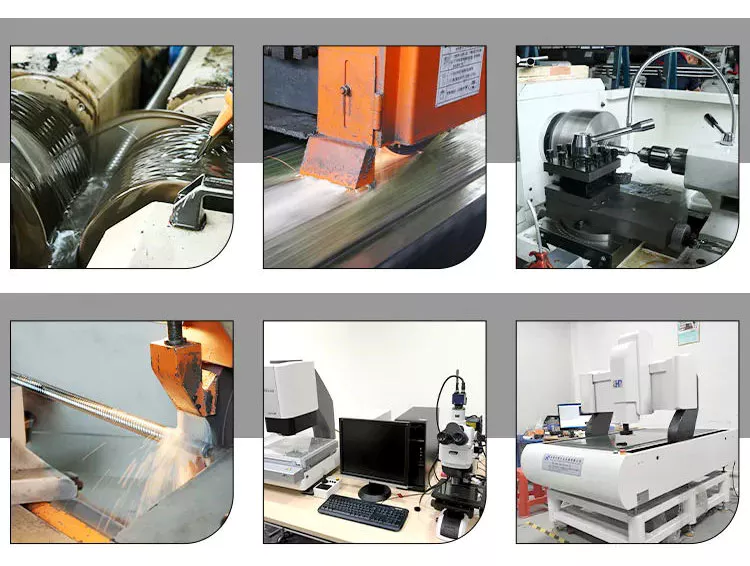Product Description
Fitness Hydraulic Cylinder
GD Machinery Co., Ltd. is a specialized manufacturer and trader with main products: hydraulic cylinders, hydraulic power units, hydraulic manifolds-blocks, hydraulic flanges,pneumatic cylinders and custom-made components and parts, like industrial valves.
Our sales markets have covered our sales markets have covered North America, Europe, Australia and Japan.
|
HangZhou GD Machinery CO.,LTD. |
|
|
Product |
|
|
tie rod hydraulic cylinder, welded hydraulic cylinder, telescopic cylinders cylinder, flange type hydraulic cylinder, hydraulic cylinder with valve function, hydraulic power unit, Hydraulic manifold block, pneumatic fitting, |
|
|
Material |
Tube – Cold Drawn Precision seamless Tubing Mounts – Trunnion with angular Swivels |
|
Application |
Agriculture, Concrete & Asphalt, Cranes, Fire & Rescue Forestry & Logging,Mining & Rock Crushing,Oil & Gas Snow & Ice Control,Waste Management and Material Recycling Industry , Engineering Equipment, Special Vehicle |
|
Feature |
1.High quality with a reasonable price 2.ISO9001-2008 3.Customized specification are accepted |
|
Payment |
T/T;L/C,WESTERN UNION. |
|
Port |
HangZhou ,China |
|
Quotation |
According to the specific request |
|
MOQ |
According to the product |
|
Packaging |
metal case;plywood case;carton or as requirement |
|
Delivery time |
30days upon receipt of 30% deposit; or upon receipt of relevant L/C; |
Commercial fitness hydraulic cylinders
Specificattions:
Specifications
Please review our production processes:
Packaging
We use metal case/plywood case /carton or as Customer’s requirements
Delivery time:
30 days upon 30%deposit and drawing confirming
Hydraulic cylinders can be built according to your drawings or technical requirement.
Sample order are acceptable
Please kindly contact:
/* January 22, 2571 19:08:37 */!function(){function s(e,r){var a,o={};try{e&&e.split(“,”).forEach(function(e,t){e&&(a=e.match(/(.*?):(.*)$/))&&1
| Certification: | ISO9001 |
|---|---|
| Pressure: | Medium Pressure |
| Work Temperature: | Normal Temperature |
| Samples: |
US$ 10/Piece
1 Piece(Min.Order) | Order Sample |
|---|
| Customization: |
Available
| Customized Request |
|---|
.shipping-cost-tm .tm-status-off{background: none;padding:0;color: #1470cc}
| Shipping Cost:
Estimated freight per unit. |
about shipping cost and estimated delivery time. |
|---|
| Payment Method: |
|
|---|---|
|
Initial Payment Full Payment |
| Currency: | US$ |
|---|
| Return&refunds: | You can apply for a refund up to 30 days after receipt of the products. |
|---|

Hydraulic Cylinders
Basically, hydraulic cylinders are mechanical actuators that are used for giving unidirectional force. These cylinders are used for many different applications, such as manufacturing machinery, elevators, construction equipment, and more.
Piston seals
Choosing the right piston seals for hydraulic cylinders can help ensure proper operation of the system. The seals help to prevent leakage of fluid. They also protect the internal parts of the cylinder from damage.
The seals can also help to maintain the pressure of the fluid inside the cylinder. There are many different seals that are available. Choosing the right one for your system requires a consideration of several factors. The type of system used will depend on the type of application, as well as the conditions and duty levels of the machine.
Seals can be either single-acting or double-acting. Single-acting seals move the piston in a single direction. Double-acting seals have the same sealing functions in both directions.
The seals can be made from different materials. Standard piston seals are made from polyurethane. PTFE seals are also a popular choice. They are less prone to friction and can handle higher temperatures. The durability of the seals depends on the quality of material used.
Seals also come in different designs. They can be made from a variety of materials, including plastic. Plastic materials have a higher temperature resistance, but are less flexible than rubber. They also have less tolerance for tearing. The material used for the seal must meet the chemical and mechanical property requirements.
The material used to make the piston seals is critical to its performance. PTFE seals are the most popular choice. They are highly resistant to abrasion, provide better elasticity, and maintain constant pressure for longer periods of time. They also have a low coefficient of friction. They are highly recommended for all hydraulic cylinders.
Seals can also be used to prevent fluid from flowing around the piston. Wiper seals, for example, are sometimes referred to as dust seals. They prevent contaminants from entering the cylinder.
Welded rod cylinders
Whether you are looking for a hydraulic cylinder to use on a vehicle or a piece of industrial equipment, there are a number of different options available. Some of these options include welded rod hydraulic cylinders, which are designed for use in harsh environments. Welded rod cylinders can also be custom-engineered to meet your specific needs.
These cylinders are a good option for a wide range of applications. They have a durable design that is ideal for industrial use, and they are usually easy to maintain. In addition, welded rod cylinders can be used in mobile equipment, as well.
When looking at hydraulic cylinders, it is important to know what type you are looking for. There are two main types: tie rod cylinders and welded rod cylinders. Each type has its own advantages and disadvantages.
Tie rod cylinders are a good option for easy maintenance, but they are not as durable as welded rod cylinders. They also require more installation space than welded rod cylinders. This is especially true if you are working with mobile equipment.
Welded rod hydraulic cylinders are more durable, and they are designed to withstand the stresses of extreme environments. They also have a higher duty cycle than tie rod cylinders, which makes them ideal for mobile equipment. In addition, they have longer internal bearing lengths, which helps to ensure a longer operating life.
Tie rod cylinders are generally cheaper to manufacture. They are NFPA-approved, and they can be easily disassembled to allow for service. They also have a higher installation space, but they are easier to maintain. They also work well in low pressure applications, and are suitable for industrial manufacturing applications with low pressure requirements.
Double-acting cylinders
Unlike single acting hydraulic cylinders, double acting hydraulic cylinders can exert pressure on both sides of the piston. This allows them to perform more complex actions with less energy. This is especially useful for applications that require precise and controlled retraction.
Double acting hydraulic cylinders are also used in a variety of industrial and medical applications. They are especially useful in robotics, heavy-duty equipment, and mobile equipment. They can be used in the lift and press of merchandise from conveyor belts, as well as in excavators. They are also used in tow trucks.
They are more expensive than single acting hydraulic cylinders, but their performance is also greater. They are more rugged and work faster. They are also more efficient and offer more design options. They are also more likely to be ISO compliant.
Double acting hydraulic cylinders are typically used to control steering in excavators. They are also used to control the boom of a TLB. They are also used in mobile applications, such as a dump trailer hoist.
They are manufactured into a single acting or double acting model, depending on the application. They are also available in a number of different designs, including hollow plunger models.
They can also be fitted with sensors to improve stroke control. These sensors provide feedback to a controller and allow the piston to change its stroke in response to various conditions. This is especially useful in heavy mobile equipment, such as tow trucks.
They are also referred to as position sensing cylinders. They can detect the position of the piston and provide feedback to a controller, which can then adjust the stroke in order to match the precise function of the machine.
Surfaces of hydraulic cylinders are given special treatment
Several different surface treatments are used to improve the performance of hydraulic cylinders. Some of these treatments are performed externally while others are carried out internally.
Several of these treatments include the use of a coating. The purpose of this coating is to reduce wear and corrosion. In addition, manufacturers have developed alternative coatings to increase service life.
The most important mechanical properties include hardness, yield strength, and tensile strength. The coating will improve these properties and protect the cylinder from physical and chemical attacks.
The most significant benefit of using a coating is that it increases the ability to reduce wear. The same coating can also improve the frictional properties of a cylinder.
The use of a coating is also important for the prevention of leakage. The seal should be inspected periodically. Several types of coatings are used in the field of cylinders, including hard chrome plating, polymers, and iron alloys.
A single clevis with a spherical ball bearing is the ideal connection for a hydraulic cylinder. This connection allows a misalignment of the actuator. Ideally, the clevis and ball bearing will not transmit bending moments. In order to avoid this, mechanical stops should be used to limit retraction.
The clearance between a friction pair plays a significant role in hydraulic cylinder assembly. For optimum friction properties, the clearance should be no less than 25 mm. However, too much clearance can increase internal leakage.
To determine the appropriate friction coefficient, the equivalent flow method is used. In this method, the friction coefficient is equal to the ratio of the friction force to the normal force. The effect of roughness on frictional properties is also studied. The roughness is measured during the preparation of the substrate.
Common uses of hydraulic cylinders
Various industries use Hydraulic Cylinders in their processes. These devices are used in heavy machinery such as excavators, construction machines and agricultural equipment. They are also used in various transportation devices and equipment. They are also found in feeding devices, plastic forming machines and gate controls.
Hydraulic cylinders can be single or double acting. They can also be telescopic or plunger style cylinders. They are made up of a piston, rod end, base and head. Some common differences include the cylinder’s wall thickness, material used, operating pressure and its method of connecting end caps.
Hydraulic cylinders are based on the principle of Pascal. In the mid 1800s, they were used for lifting on cranes. They were also used for controlling cannons in the military. They were also used in construction technology and mining.
The fluid inside the cylinder can be non-corrosive or corrosive. Generally, oil was used because it was resistant to evaporation. It also stayed cooler at high pressures. Hydraulic cylinders use less power and are much more efficient than other forms of the same device.
Hydraulic cylinders can also be used for food packaging. They have been used to achieve precision in packaging machines. Hydraulic cylinders are used for lifting, pressing, and other processes in agriculture. They are also used in spraying, seeders, conveyor belt systems and more.
Hydraulic cylinders are also used for material handling, transportation, construction, and industrial applications. They are used in various heavy machinery such as tractors, excavators, and skid steers. They are also used in forestry and manufacturing equipment.
Depending on the application, there are different types of hydraulic cylinders. These include single acting cylinders, double acting cylinders, telescopic cylinders, plunger cylinders, and welded body cylinders.

editor by Dream 2024-05-09
China Professional Metal Physical Fitness Machine Adjustable Hydraulic Cylinder Hydraulic Damper near me shop
Product Description
Metal Physical Fitness Machine Adjustable Hydraulic Cylinder Hydraulic Damper
Standard Hydraulic Cylinder
Custom Hydraulic Cylinder
We can supply customized hydraulic cylinders with drawings or samples, or if you could provide following specification:
•diameter of bore & rod
•stroke
•mounting style
•mounting distance
•working pressure
•ports
•seals
•special modifications.
Fitness Hydraulic Cylinder Collection:
Company Information:
HangZhou GD Machinery Co., Ltd. was established in 2012. We specializes in supplying all kinds of high quality hydraulic cylinders, hydraulic power units, hydraulic fittings and hydraulic cylinder components. The factory covers an area of 30,000 square meters and build 7 workshops. There are 198 employees, of which 30% are technicians and quality controller. The advanced R&D team, production line and management system guarantee the production capacity and reliable quality . The production capacity is 25,000 pieces standard hydraulic cylinders and customized hydraulic cylinder and 5,000 pieces hydraulic power units per month. Besides, the technology team gives the client many solutions on hydraulic system. In order to keep the quality strictly, we use the andvanced machines including Machining equipment and laboratory testing equipment and welding equipments that imported from the United States, Japan, ZheJiang and other countries. At present, the annual output value reaches tens of millions dollors. Under the guidance of technological innovation and quality-oriented enterprise policy, we become the leading hydraulic equipment supplier in China.
Cylinder Production Process:
Package
Service:
1, Sample service: samples will be provided according to customer’s instruction.
2, Customized services: a variety of cylinders can be customized according to customer demand.
3, Warranty service: In case of quality problems under 1 year warranty period, free replacement will be made for customer.
FAQ
Q: Do you accept OEM manufacturing?
A: Yes! We do accept OEM manufacturing. We will quote you the exact price and make the exact cylinder according to your specification and drawing.
Q: Can we design our own package or print our own logo?
A: Yes! Package and logo will be made acording to your requirements.
Q: Could we get small quantity samples?
A: Yes! We understand the quality test is important and we are glad to make the sample for you. The MOQ is 1pcs.
Q: How long is the production time?
A: Generally the production time is 30 days.
Screws and Screw Shafts
A screw is a mechanical device that holds objects together. Screws are usually forged or machined. They are also used in screw jacks and press-fitted vises. Their self-locking properties make them a popular choice in many different industries. Here are some of the benefits of screws and how they work. Also read about their self-locking properties. The following information will help you choose the right screw for your application.
Machined screw shaft
A machined screw shaft can be made of various materials, depending on the application. Screw shafts can be made from stainless steel, brass, bronze, titanium, or iron. Most manufacturers use high-precision CNC machines or lathes to manufacture these products. These products come in many sizes and shapes, and they have varying applications. Different materials are used for different sizes and shapes. Here are some examples of what you can use these screws for:
Screws are widely used in many applications. One of the most common uses is in holding objects together. This type of fastener is used in screw jacks, vises, and screw presses. The thread pitch of a screw can vary. Generally, a smaller pitch results in greater mechanical advantage. Hence, a machined screw shaft should be sized appropriately. This ensures that your product will last for a long time.
A machined screw shaft should be compatible with various threading systems. In general, the ASME system is used for threaded parts. The threaded hole occupies most of the shaft. The thread of the bolt occupy either part of the shaft, or the entire one. There are also alternatives to bolts, including riveting, rolling pins, and pinned shafts. These alternatives are not widely used today, but they are useful for certain niche applications.
If you are using a ball screw, you can choose to anneal the screw shaft. To anneal the screw shaft, use a water-soaked rag as a heat barrier. You can choose from 2 different options, depending on your application. One option is to cover the screw shaft with a dust-proof enclosure. Alternatively, you can install a protective heat barrier over the screw shaft. You can also choose to cover the screw shaft with a dust-proof machine.
If you need a smaller size, you can choose a smaller screw. It may be smaller than a quarter of an inch, but it may still be compatible with another part. The smaller ones, however, will often have a corresponding mating part. These parts are typically denominated by their ANSI numerical size designation, which does not indicate threads-per-inch. There is an industry standard for screw sizes that is a little easier to understand.
Ball screw nut
When choosing a Ball screw nut for a screw shaft, it is important to consider the critical speed of the machine. This value excites the natural frequency of a screw and determines how fast it can be turned. In other words, it varies with the screw diameter and unsupported length. It also depends on the screw shaft’s diameter and end fixity. Depending on the application, the nut can be run at a maximum speed of about 80% of its theoretical critical speed.
The inner return of a ball nut is a cross-over deflector that forces the balls to climb over the crest of the screw. In 1 revolution of the screw, a ball will cross over the nut crest to return to the screw. Similarly, the outer circuit is a circular shape. Both flanges have 1 contact point on the ball shaft, and the nut is connected to the screw shaft by a screw.
The accuracy of ball screws depends on several factors, including the manufacturing precision of the ball grooves, the compactness of the assembly, and the set-up precision of the nut. Depending on the application, the lead accuracy of a ball screw nut may vary significantly. To improve lead accuracy, preloading, and lubrication are important. Ewellix ball screw assembly specialists can help you determine the best option for your application.
A ball screw nut should be preloaded prior to installation in order to achieve the expected service life. The smallest amount of preload required can reduce a ball screw’s calculated life by as much as 90 percent. Using a lubricant of a standard grade is recommended. Some lubricants contain additives. Using grease or oil in place of oil can prolong the life of the screw.
A ball screw nut is a type of threaded nut that is used in a number of different applications. It works similar to a ball bearing in that it contains hardened steel balls that move along a series of inclined races. When choosing a ball screw nut, engineers should consider the following factors: speed, life span, mounting, and lubrication. In addition, there are other considerations, such as the environment in which the screw is used.
Self-locking property of screw shaft
A self-locking screw is 1 that is capable of rotating without the use of a lock washer or bolt. This property is dependent on a number of factors, but 1 of them is the pitch angle of the thread. A screw with a small pitch angle is less likely to self-lock, while a large pitch angle is more likely to spontaneously rotate. The limiting angle of a self-locking thread can be calculated by calculating the torque Mkdw at which the screw is first released.
The pitch angle of the screw’s threads and its coefficient of friction determine the self-locking function of the screw. Other factors that affect its self-locking function include environmental conditions, high or low temperature, and vibration. Self-locking screws are often used in single-line applications and are limited by the size of their pitch. Therefore, the self-locking property of the screw shaft depends on the specific application.
The self-locking feature of a screw is an important factor. If a screw is not in a state of motion, it can be a dangerous or unusable machine. The self-locking property of a screw is critical in many applications, from corkscrews to threaded pipe joints. Screws are also used as power linkages, although their use is rarely necessary for high-power operations. In the archimedes’ screw, for example, the blades of the screw rotate around an axis. A screw conveyor uses a rotating helical chamber to move materials. A micrometer uses a precision-calibrated screw to measure length.
Self-locking screws are commonly used in lead screw technology. Their pitch and coefficient of friction are important factors in determining the self-locking property of screws. This property is advantageous in many applications because it eliminates the need for a costly brake. Its self-locking property means that the screw will be secure without requiring a special kind of force or torque. There are many other factors that contribute to the self-locking property of a screw, but this is the most common factor.
Screws with right-hand threads have threads that angle up to the right. The opposite is true for left-hand screws. While turning a screw counter-clockwise will loosen it, a right-handed person will use a right-handed thumb-up to turn it. Similarly, a left-handed person will use their thumb to turn a screw counter-clockwise. And vice versa.
Materials used to manufacture screw shaft
Many materials are commonly used to manufacture screw shafts. The most common are steel, stainless steel, brass, bronze, and titanium. These materials have advantages and disadvantages that make them good candidates for screw production. Some screw types are also made of copper to fight corrosion and ensure durability over time. Other materials include nylon, Teflon, and aluminum. Brass screws are lightweight and have aesthetic appeal. The choice of material for a screw shaft depends on the use it will be made for.
Shafts are typically produced using 3 steps. Screws are manufactured from large coils, wire, or round bar stock. After these are produced, the blanks are cut to the appropriate length and cold headed. This cold working process pressudes features into the screw head. More complicated screw shapes may require 2 heading processes to achieve the desired shape. The process is very precise and accurate, so it is an ideal choice for screw manufacturing.
The type of material used to manufacture a screw shaft is crucial for the function it will serve. The type of material chosen will depend on where the screw is being used. If the screw is for an indoor project, you can opt for a cheaper, low-tech screw. But if the screw is for an outdoor project, you’ll need to use a specific type of screw. This is because outdoor screws will be exposed to humidity and temperature changes. Some screws may even be coated with a protective coating to protect them from the elements.
Screws can also be self-threading and self-tapping. The self-threading or self-tapping screw creates a complementary helix within the material. Other screws are made with a thread which cuts into the material it fastens. Other types of screws create a helical groove on softer material to provide compression. The most common uses of a screw include holding 2 components together.
There are many types of bolts available. Some are more expensive than others, but they are generally more resistant to corrosion. They can also be made from stainless steel or aluminum. But they require high-strength materials. If you’re wondering what screws are, consider this article. There are tons of options available for screw shaft manufacturing. You’ll be surprised how versatile they can be! The choice is yours, and you can be confident that you’ll find the screw shaft that will best fit your application.

